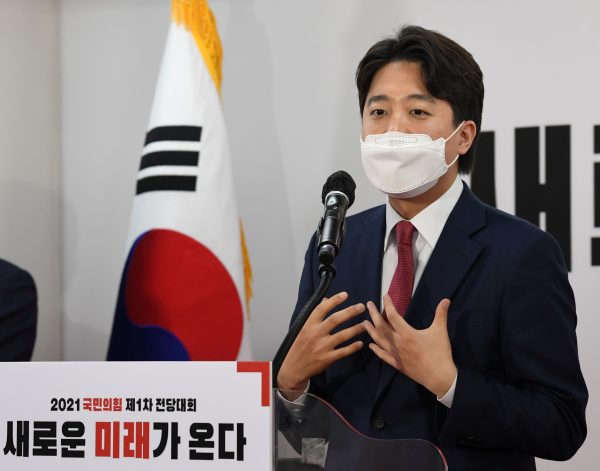Increasing support for the PPP today contrasts sharply with one year ago, when the PPP secured only 102 seats in the National Assembly, while the Democratic Party (DP) won 174 seats. The opposition PPP’s rapidly growing support from young people highlights the public’s increasing dissatisfaction with the current Moon administration and the numerous challenges the DP faces in the lead up to the March 2022 presidential elections.
South Korea has historically been considered one of the successful Third Wave democracies with its thriving democratic culture and competitive elections. The country was further heralded as a democratic miracle during the 2016–17 Candlelight Movement that ended with the impeachment of former president Park Geun-hye, the first president to be impeached through democratic procedures. Indeed, the country was seen to ‘serve as inspiration to defenders of liberal democracy around the world’ during this time. But South Korea has since followed the global trend towards deconsolidation. Like many other struggling democracies, the quality of democracy seems to be deteriorating from within.
Inheriting the spirit of the 2016–17 Candlelight Movement, the Moon administration initially gained significant support under the slogan of ‘equal opportunity, fair process, and righteous result’. The public had high expectations for the progressive administration to ‘drain the swamp’, including the lingering issue of elite privileges as well as economic and gender polarisation. The administration experienced significant public backlash after it failed to meet these expectations.
Tension and conflict escalated in the South Korean political landscape as the public increasingly expressed disappointment with the administration’s perceived hypocrisy and double standards. Though President Moon Jae-in denounced former president Park’s corruption scandals and promised to eradicate ‘deep-rooted evils’, his party members were also accused of enjoying similar ‘gold spoon’ elite privileges, including former justice minister Cho Kuk. This led many of his initial supporters to view the administration as being equally corrupt and untrustworthy.
The Moon administration’s failed economic policies may be another reason for public frustration. Youth unemployment has increased, despite South Korea’s youth being the most educated generation the country’s history. Apartment prices have soared in Seoul by nearly 60 per cent. The Korea Land and Housing Corporation scandal further exacerbated public dissatisfaction. Approval ratings for President Moon have been increasingly low from both ends of the political spectrum, with ratings hovering around 34 per cent earlier this year.
President Moon has lost a majority of supporters from his key voting bloc. Young South Koreans who traditionally vote left have turned into swing voters. His approval rating is lowest among young South Korean men, who are increasingly expressing conservative political views. Many young South Korean women who traditionally supported the DP also express relatively low approval ratings at around 37 per cent. While not all young South Koreans are fully supportive of the opposition party, growing support for the PPP signifies that they are unwilling to tolerate the current administration’s alleged abuse of power and deviation from democracy.
Democratic deconsolidation may be further accelerated by the fact that President Moon has shown hesitancy and reluctance to work with other democracies and to join the Quadrilateral Security Dialogue — a democratic coalition comprising Australia, India, Japan and the United States — due to fears of antagonising China. Moon has instead pivoted his attention towards improving inter-Korean relations, but there has been no substantial outcome here. Rather, the administration has been criticised by other democracies and international organisations for its illiberal practices towards North Korean defectors and its failure to denounce North Korean human rights violations.
The Moon administration began with both significant difficulty and high hopes for reinvigorating a vibrant democracy. The outbreak of COVID-19 has certainly burdened it with unforeseen problems. Any administration would have struggled to meet high public expectations during this time. But the continuation of corrupt practices, failed economic policies and a lukewarm attitude towards working with other democracies are clear signs of ongoing democratic deconsolidation.
But there is still hope. The growing political participation of younger South Koreans may lead to dramatic changes in the country’s political sphere through reforms in the presidency, political party leadership and the party constitutions of the PPP and DP. With both general and regional elections scheduled next year, how the public — particularly the young population — vote and push for political change will be critical in shaping South Korea’s democratic future.
Hannah June Kim is Assistant Professor in the Department of Political Science at the University of Nebraska Omaha.


Thanks for an informative analysis. I would appreciate reading more about what kinds of reforms might be attempted. Would these await the outcome of the election in March 2022? Would the candidates and the parties propose them as part of the upcoming campaign?
In this post, how does one disentangle “democratic deconsolidation” from “shift to conservative in response to government failures?”